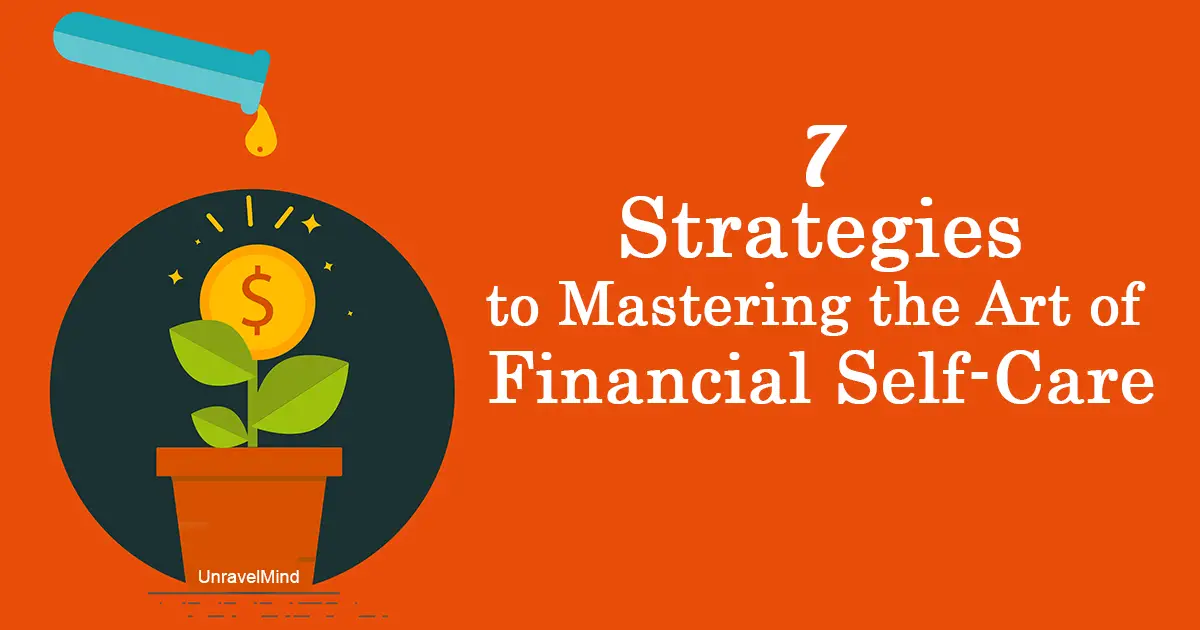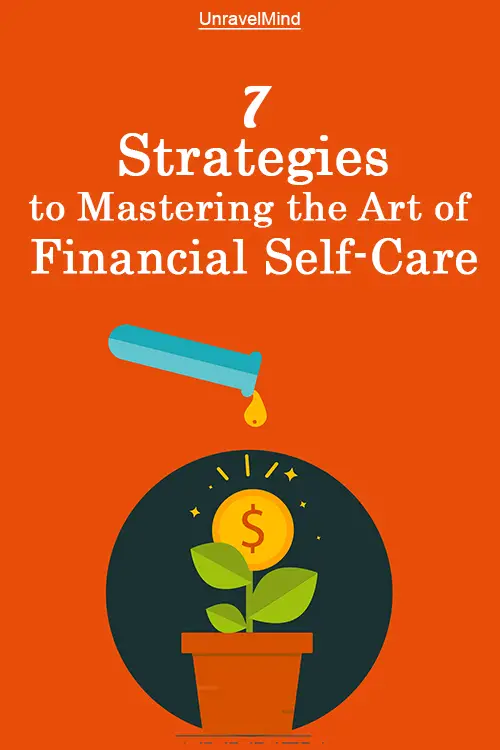Did you ever feel creeping anxiety over whether you will ever have enough money to attain your dreams? Or perhaps, at certain parts of the month, you look into your wallet with absolute dread, uncertain about how much is in it? Having such thoughts continuously can add up and add a significant amount of stress to your life. This is where the importance of financial self-care lies.
Not Having To Worry About Your Finances Opens Up Better Self-Care
Complete self-care means looking after every part of life. However, self-care manuals usually talk about our mental, emotional, and physical aspects. But there is another very fundamental aspect that needs attention in today’s world: the financial one.
Before we get into it, it’s not just about self-discipline and being frugal. So, how can we think about and look after our money better? Moreover, how does it actually help in eliminating stress? Here are 7 ways to get you started on it:
Let Financial Self-Care Aid Self-Care
1. Most Self-Care Practices Need Money
There are a lot of self-care practices we can do on our own without money, like meditation. However, essential practices like therapy for our mental self-care, masks for our physical health, and others all need to be paid with money. Financial self-care lets us approach general self-care in a more worry-free way since it facilitates this access.
2. Choose When To Be Vigilant
Looking after our money does not mean counting every penny every second. You will only be more worried and stressed if you are so crane-eyed. As Bari Tessler, a financial therapist, says always staring at the numbers is similar to overwatering your flowers. The end result will usually not be helpful.
However, that also does not imply that you should only think about it when there’s nothing else left to do. Try to take a look at your day-to-day finances every 15 days, perhaps. That should help a lot in staying on top of and managing incomes and expenses, even if it is not fixed. In the industry, it’s called a “money date”.
3. Write Down Your Spends And Income
Just like most kinds of self-care, financial self-care begins with increasing awareness. So, do what you do for dealing with your emotional or mental anxieties: write down where the money is going. You can also add a short note on how you felt while incurring those expenses. There is no need to look at it daily, just update it. Look at it during the “money dates”.
4. Observe What You Spend On And How You Feel
Take a moment to look at where your money is going over the past 6 months. Try to notice the things you are spending on, and if there are habits or trends to them. We usually do not get to know them without giving extra time to them.
After that, try to remember the emotions you go through while doing those activities. Some of them may be related to your hobbies and you spend on them because it makes you feel happy. Others might be subscriptions or activities that you had once picked up but no longer want to continue. This exercise serves two purposes: to help you with your finances and increase your awareness about yourself.
5. Have A Financial Target
Having goals and targets is absolutely essential for any kind of self-care. Hone the ability to chase them down by adding financial self-care targets to the list as well. After all, these targets are usually much easier to hit. So set aside some time to think about where you want to stand financially over set periods of time. The “financial vision board” should be somewhere you can see easily, and it can have weekly, or even daily targets. There is no need for huge, extravagant targets. Start small and build up every day and every week.
6. Instill Habits That Soothe Your Financial Worries
For financial anxiety, you can use meditation or breathwork to get past the moment. However, for long-spanning worries, try to get into the habit of salvaging finances in some form. This can mean getting the courage to return something you may not like as soon as possible, giving some more funds to your retirement plan, or, if you have enough money left over for the month, repaying another debt regardless of the deadline.
7. Get The Help Of Professionals
The final tip will be to go to professionals. Just as is the case with every kind of self-care, financial self-care too can be miraculous when it comes from experts. By experts, we mean accountants, money coaches, and therapists, not self-help guides. Sometimes, the financial issues, and stress arising from them, are too difficult to deal with on our own. Another person’s presence may be the key to solving them.
Frequently Asked Questions:
What Are The Benefits Of Financial Self-Care?
Financial self-care is a way of ensuring worry-free and sustainable self-care plans. Everything in this world runs on money. As such, if spending money on self-care adds to the anxiety and stress, it defeats the purpose of the activity. Thus, financial self-care removes that question.
What Is Financial Wellness?
This term refers to how healthy your financial state in life is, and your ability to control it. Financial self-care leads to financial wellness.
How Do You Self Control Financially?
The most important aspect of financial self-care is self-discipline. The more disciplined and observant you can be toward your expenditure, the better your control will be.
Read more : 7 Types Of Self-care And Why You Should Practice All Of Them


